Sarathy Korwar on award wins and uniting sonic worlds through defiance
Melding traditional Indian classical with freeform jazz and electronica, producer and composer Sarathy Korwar explores what it means to be Indian in a UK, and how he wants to soundtrack a united utopia.
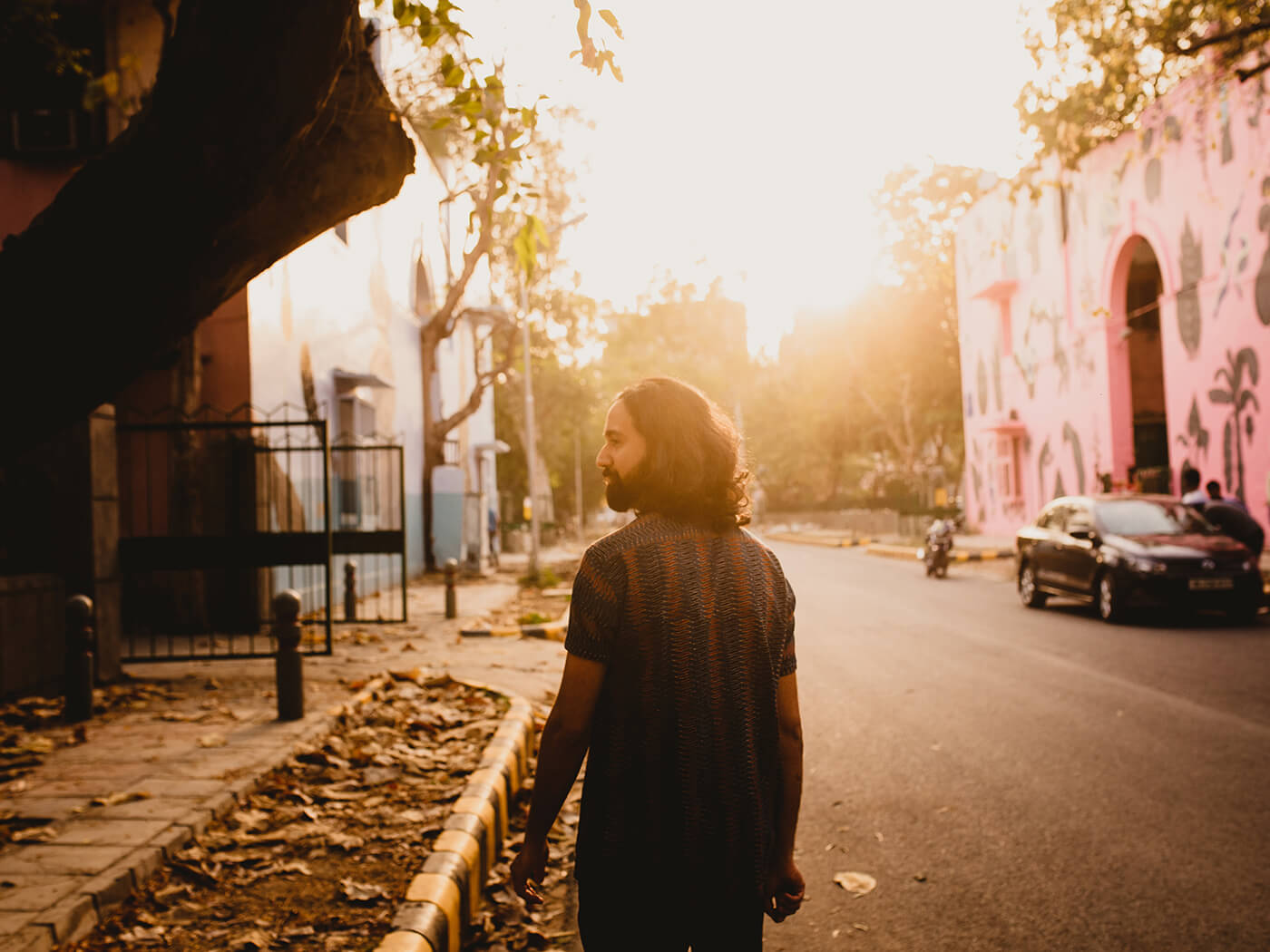
Image: Rishabah Sood
With the recent turmoil in the US and brittle political battles in the UK rolling in tandem with the ongoing fight against COVID-19, it can seem like society is hellbent on tearing itself in two, with nations drawing up walls and populism rife. However, it’s in the calmer waters ahead of this raging backdrop where producer, composer and bandleader Sarathy Korwar is searching for musical inspiration.
“My next record is based on my thoughts on our future, to look to a society which is very positive,” says Korwar. “We’re living in such dystopian times. It’d be too easy to make an angry record with all these kinds of emotions playing out in front of us.”
Korwar’s two solo albums to date – 2016’s Day To Day and 2019’s Association of Independent Music Independent Album of the Year More Arriving – have addressed the concept of identity, with the second more pointedly confronting what it’s like to be Indian living in the UK today, a nation ravaged by Brexit and ongoing debates about what it is to be British. More Arriving saw him blend his retro-futurist soundscapes with traditional Indo-classical sounds amid turns by South Asian MCs and poets. It’s stirring stuff, with his music responding potently to living, breathing issues around this national crisis of self. But his next record looks to go further, homing in on a musical utopia where hope might lie once today’s dust has settled.
“I want to envision a world where words like ‘immigrant’, ‘diaspora’ – they don’t exist, and instead multiculturality is the norm,” he says. “I’m a firm believer that humanity is at its best when it works like this.”
Musical family
With both parents semi-professional Indian classical singers, Korwar grew up surrounded by sound and was introduced to the tabla as a kid.
“It was my first instrument and entry point into percussion and playing,” he says. “From there, I grew up listening to all sorts of music from the West, bands like the Doors and Led Zeppelin, which made me want to play the drums.”
Throughout his youth, Korwar kept his passions for rock bands and classical percussion separate until he began dreaming of brewing up his own music.
“I wanted to play rock ’n’ roll, blues and jazz, and the tabla too. But it was never about combining them. The fusion of styles happened later when I was having to think about the best ways to express myself musically.”
After numerous stints in various bands and ensembles in London, it took a while for Korwar to feel ready to step out on his own. Creative frustrations ultimately led to him revealing his musical personality to the wider world.
“If you’re in a band, you think you’re a creative person,” he says, “but often drummers don’t get a look in when it comes to songwriting. I had all these ideas around making and arranging music, but they went unrealised until I struck out on my own.”
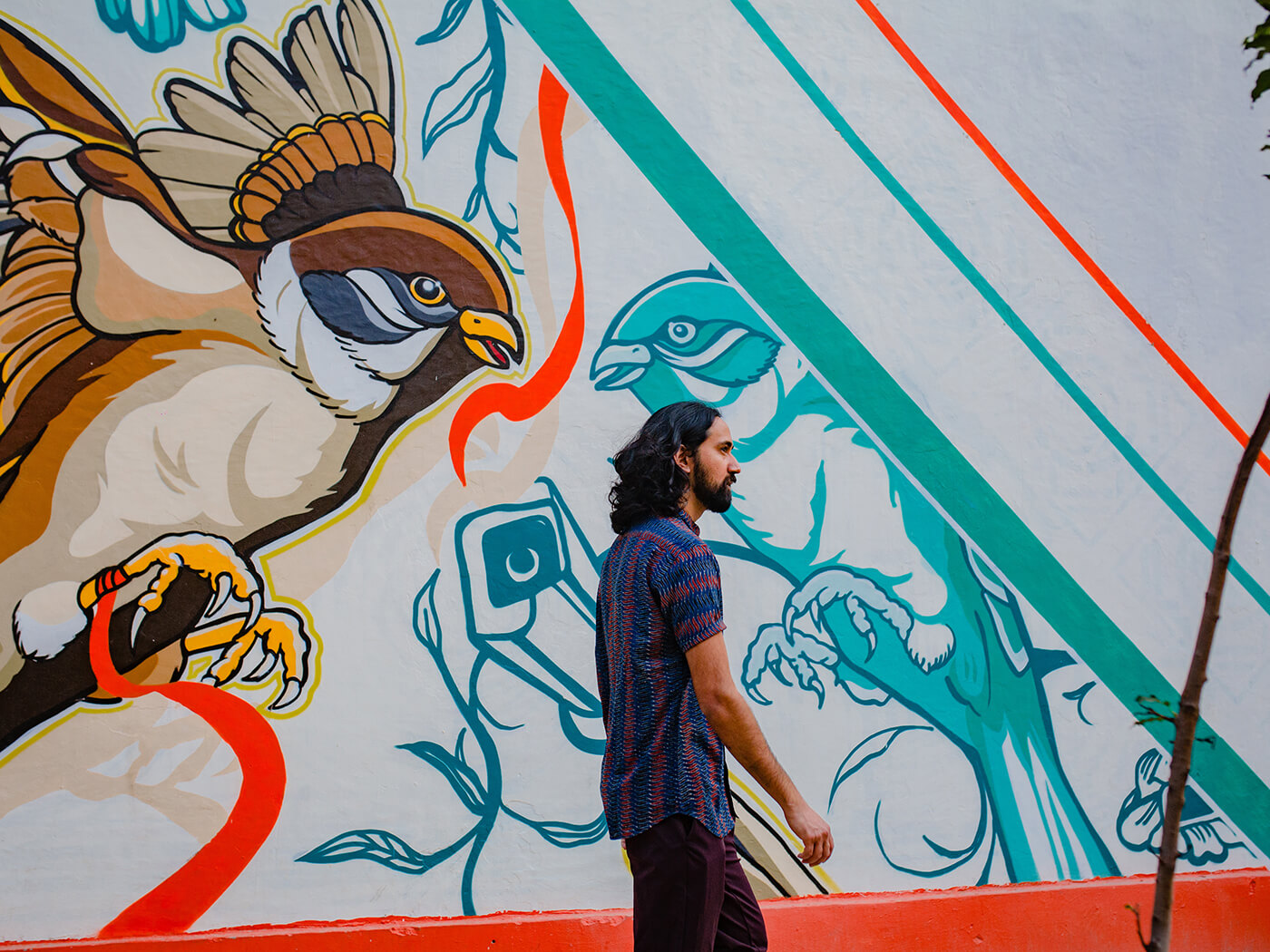
Day To Day
Although Korwar’s inability to fully embrace his musical self led to him going it alone as an artist, it was the discovery of the Sidi community in India that inspired his debut record Day To Day.
He travelled to India with a handheld Zoom recorder to immerse himself in their world, making a series of field recordings before heading into a studio with a band made up of his friends from the UK.
“I wanted to make sure that the recordings carried a sense of the space, sounds and a context of where they were from,” says Korwar of the process behind his debut release. “You can hear a lot of background noise. But it worked with my limited budget. Then from these recordings, I went to a studio in Pune in India with a band from the UK, and we spent four days in the studio reacting to the sounds I’d captured with the Sidis. Ultimately, that’s what became Day To Day.”
Inspired by modern electronica and the traditional Indian music of his childhood, Korwar’s ambitions were at the same time bolstered by winning the support of the Steve Reid Foundation. The initiative was established to support emerging musicians with mentorship from tastemakers such as Four Tet, Floating Points and Gilles Peterson. The foundation also released the LP in collaboration with Ninja Tune. The debut’s aural results mix the hypnotic chants of the Sidi people with ambient textures to striking effect.
“Everything clicked for me around this six-month period,” he says. “I came out of it with this concept of making a modern, contemporary jazz record.”
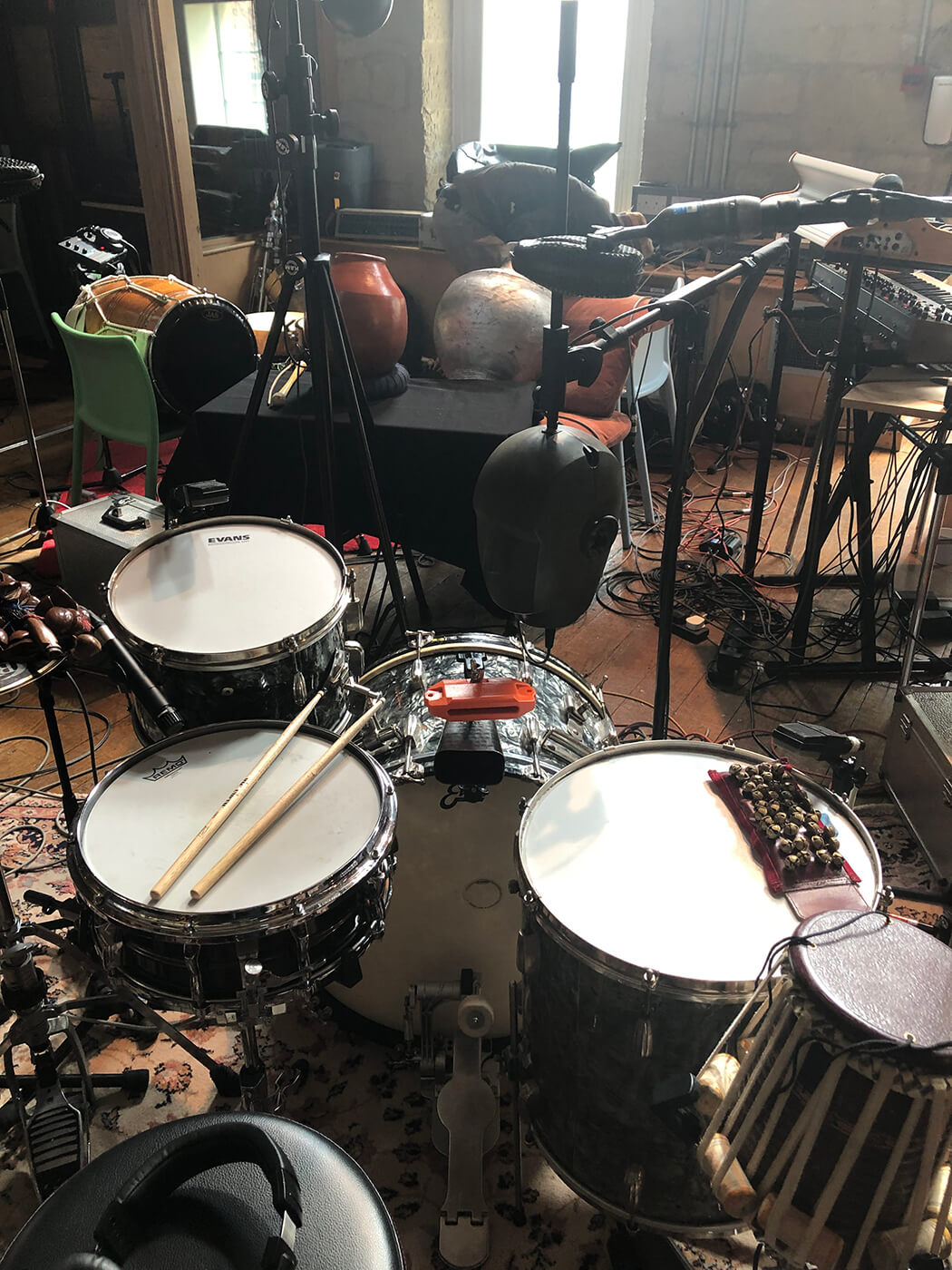
More Arriving
Work on the brilliant follow-up More Arriving began in the summer of 2016, just after the results of the Brexit referendum had sent shock waves through the UK and wider world. The album was recorded across the three years following the vote in various locations between Mumbai and London, with a whole host of rappers from Mumbai and New Delhi. Zia Ahmed and Aditya Prakesh provide spoken-word and rap performances mixed with Korwar’s own Indian classical jazz sounds. Korwar made multiple trips to India to bring it all together in the shadow of the Brexit vote result.
“It was impossible to avoid,” he says. “So much of what I felt, the anger about not being represented or misrepresented, it stemmed from Brexit. So I thought it would be a political record, but the extent of how political it became developed over time. The title itself is a response to this negative portrayal of immigration and says, ‘There’s more of us coming, there’s nothing you can do about it’. That’s not a bad thing. We are moving through history, and change is not something anyone should fear.”
The making of the album itself was done once again with Korwar on the move, snatching recording stints with performers and MCs whenever he could.
“A lot of the vocal takes were recorded in my grandfather’s apartment in Mumbai, connecting a couple of [Shure SM]58s to my Zoom recorder and just playing the track in the MC’s headphones,” he says. “We just recorded wherever and whenever we could.”
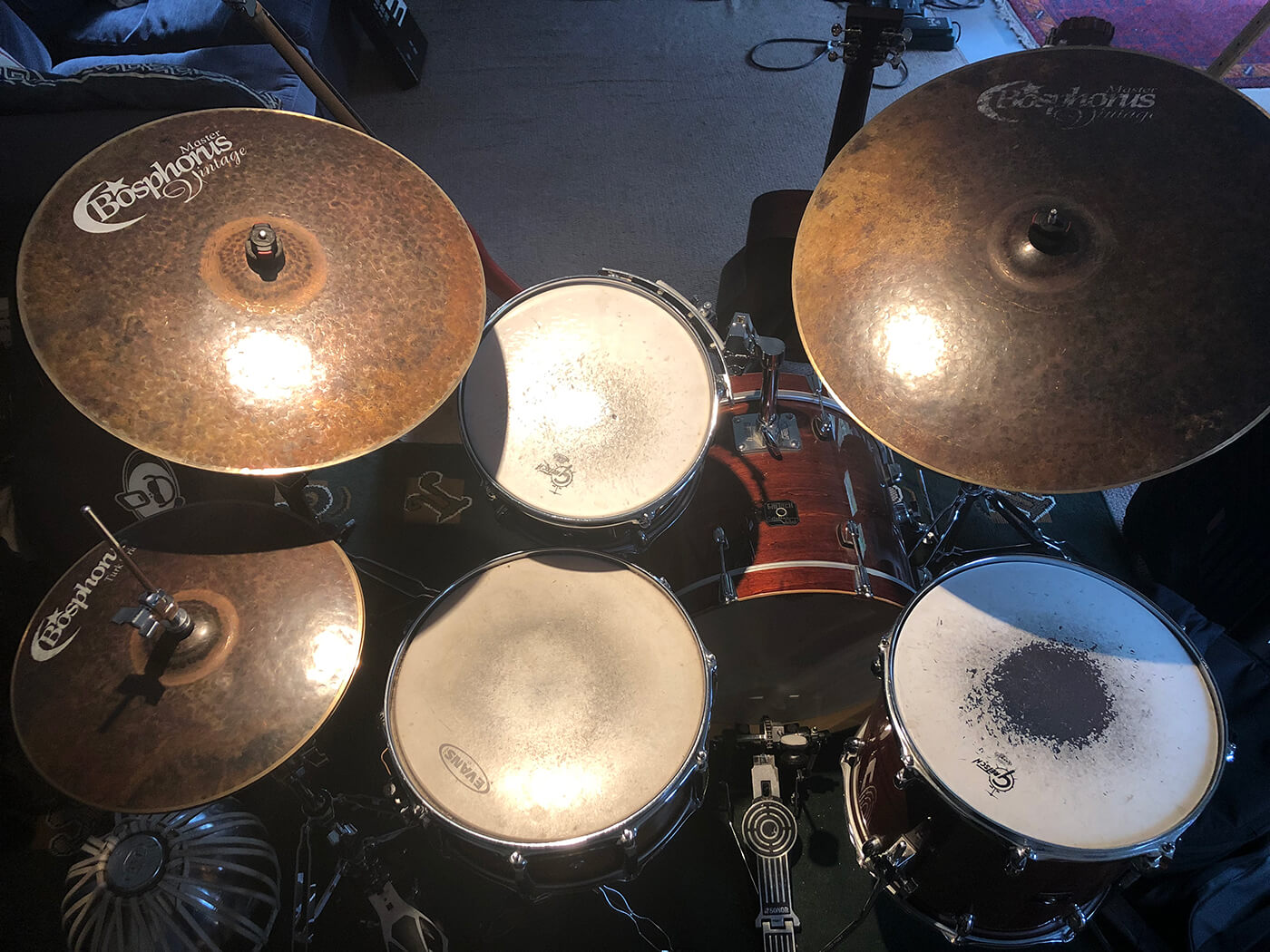
Korwar made much of the music with a band recording improvised performances on either side of Sarathy’s trips to India. His concept was to set up a creative conversation with the UK players and Indian wordsmiths, with Sarathy acting as a conduit.
“I ended up with about 10 or 12 half-done tunes from this series of sessions,” he says. “I’d go to India to find the MCs. Then, depending on their performances, I’d go back and overdub more music. I wanted it to be an exchange, so I made several journeys back and forth.”
This organic way of working meant the tracks on the album took on a life of their own as he uncovered exciting new collaborators and creatives. “The sound evolved as we went on. I ended up working with artists I didn’t really know at the beginning. After hearing their vocal take, I’d go back into a tune and the themes developed too.”
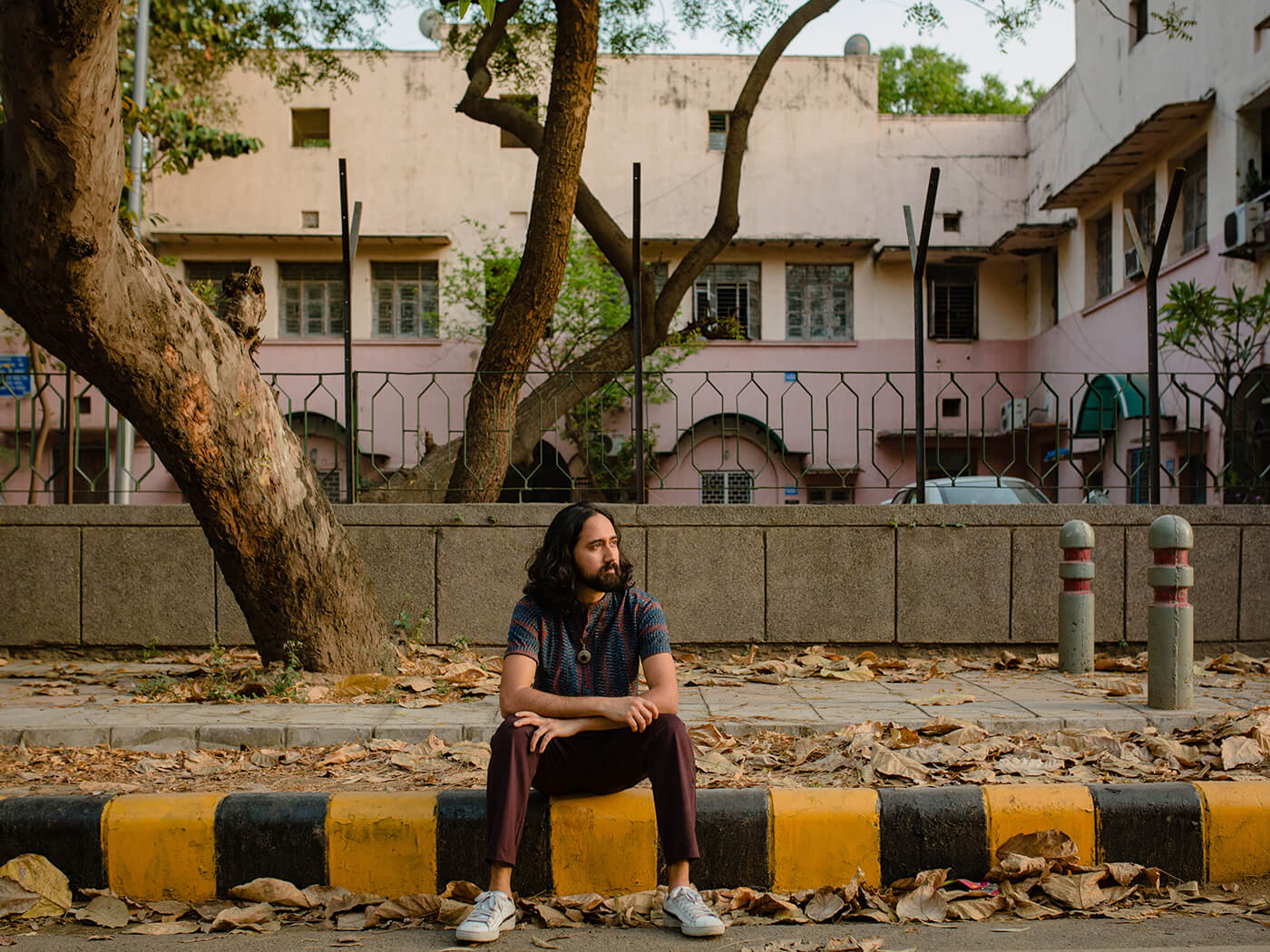
Freewheeling improvisation
Korwar’s unique way of working on his compositions involves a combination of trust and belief in his collaborators’ creative powers, particularly when recording in the studio.
“I usually assemble players with a similar background to me, whether it’s jazz or more traditional improvisation,” he says. “We’ll have these 40-minute mega-jams, and then I’ll spend a month editing tunes from hours of recordings. That’s my way of working. It takes away any overthinking and is at the foundation of all my records.”
The players are provided with a small amount of information ahead of the recording sessions but only enough to give them a shared starting point on their journey. Once the playing has begun, they’re left to ricochet off each other.
“My music-making is based around this idea of giving up control, of committing to the spontaneity of the players, how they listen and respond to each other,” says Korwar. As a bandleader, he has numerous techniques to maintain energy levels among his musicians, including beginning sessions with breathing techniques.
“Making music like this is incredibly exhausting, mentally,” he says. “I’m demanding a lot from the players by asking them to be constantly creative. It’s not like just playing some chords or to a click. So there has to be room in the session for the music to flow, even if it doesn’t go quite as planned.”
Production role
Korwar has grown into his role as a producer over the albums, remixes and releases he’s worked on, where he’s had to create his own path.
“I never considered myself to be a producer to start with,” he says. “I thought of myself as a drummer first, then a composer, then I fell into producing my own work. The more I did, literally with just the onboard effects from whatever DAW I was using at the time, the more I learnt about EQs, compressions and reverbs.”
His approach of fusing traditional instrumentation with electronics is a novel one and a style he has forged himself, with few fellow innovators to look up to for inspiration.
“There aren’t many sonic reference points for knowing how tablas will work with flangers,” he laughs. “It’s about experimenting – but that’s what makes it so exciting. The music I’m going to create will sound fresh regardless of what I do because there’s so little history or context which precedes this.”
With this in mind, Korwar’s set-up for classical Indian percussion is very DIY, shaped by what he dubs a process of trial and error over many years.
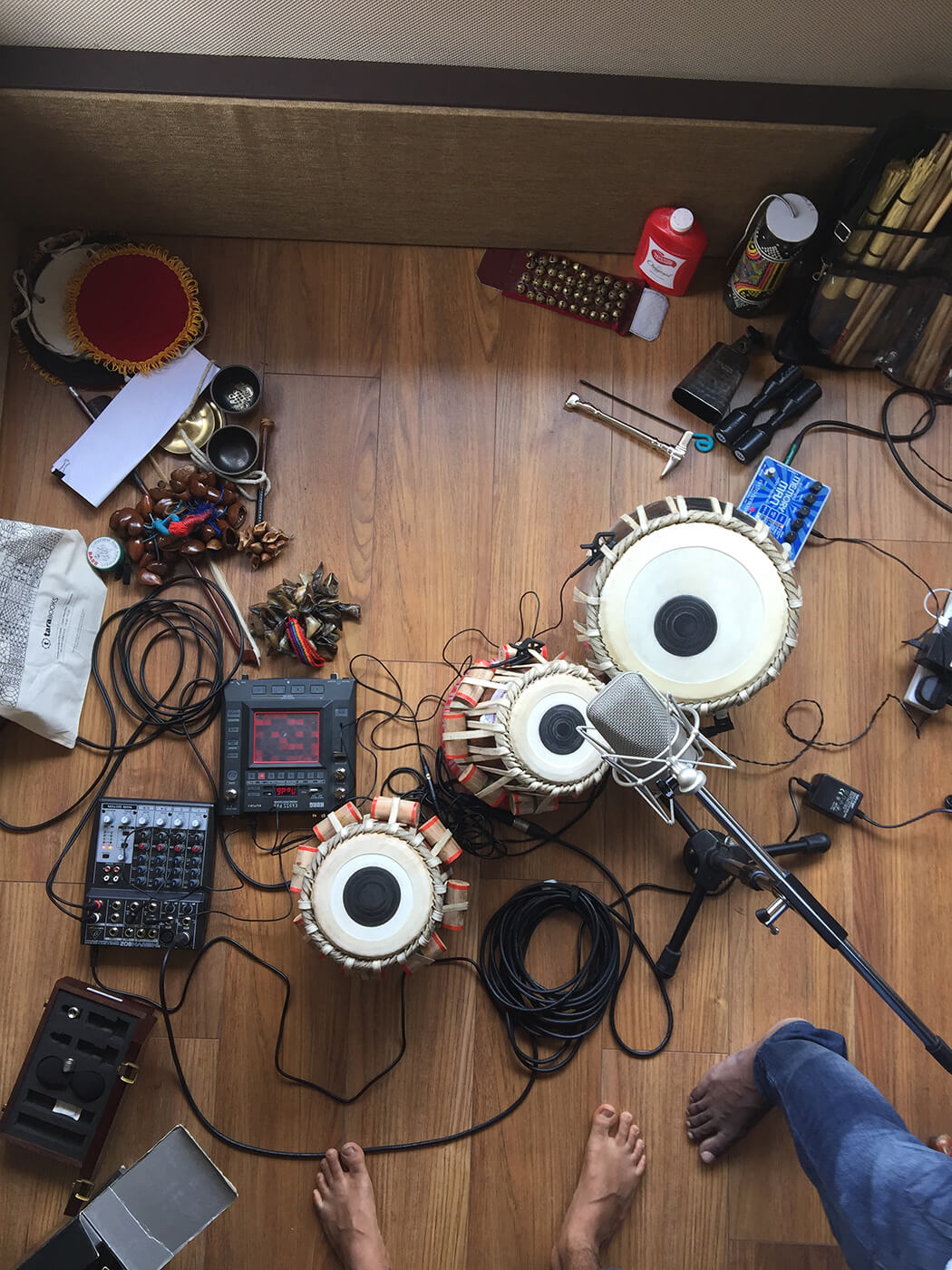
“I’ve really experimented with my tabla,” he says. “I’ve got internal mics in there to pick up a whole new world of sound that conventional mics wouldn’t be able to. I’ve tried different vocal processors and guitar pedals. I have some specific plug-ins I use and depend on. That’s where I’m at. I use my Korg Kaoss pad a lot. I use an Electro-Harmonix Memory Man and feed a lot of stems through it. It’s a very DIY approach, but that’s how it’s always been. I’ve grown increasingly confident in the stuff I have at my disposal rather than obsessing over buying too many new pieces of gear.”
Korwar’s software of choice is now Ableton, thanks to what he says is its greater consistency as a platform.
“I’ve moved my entire workflow into Ableton over the past three years,” he says. “I used to work with Logic, but increasingly, I was putting my tabla into Ableton and found it to be steadier, more reliable. Now I work through Ableton’s dashboard, and it’s the only software I use.”
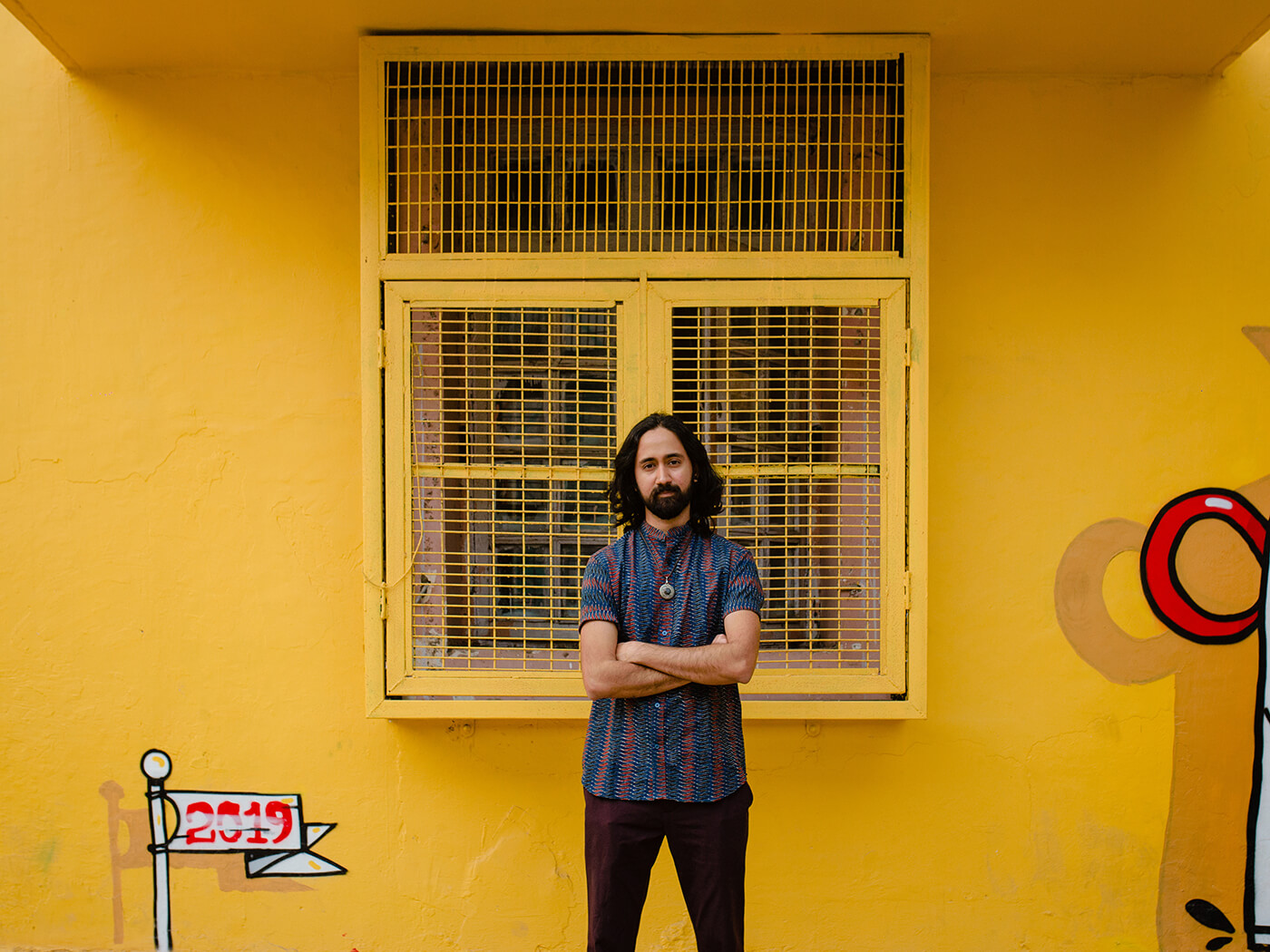
Studio base
Korwar currently occupies his own London studio where he likes to keep his equipment set up and ready to record. It means there’s less time spent dealing with the practical demands of his gear and more time dedicated to creating, something he appreciates when feeling inspired.
“I work out of a Focusrite and an 18-channel soundcard – that’s connected to my drums, percussion, it’s all mic’d up and ready to go,” he says. “I hate messing around connecting wires. So I like to go into the studio first thing in the morning when I feel most inspired and work until midday. I’m not a night owl like so many in the industry.”
His Electro-Harmonix Memory Man is one of his favourite pieces of kit, a delay pedal he’s used extensively in his recordings for both his albums to date.
“I love it with all my heart as I know it so well. It almost feels like an extension of my tabla, and so I don’t even have to think when using it. It’s an important instrument in my armoury when recording and in post-production too.”
He also cites the Roland TR-808 and Roland SPD-SX sampling pad as crucial elements, the latter a particular benefit to him when performing live.
“It’s great at triggering samples from any of the poets or MCs I’ve worked with,” he says. “I put triggers on my kick drum, connect it to the pad and have some massive sub-bass drops.”
Korwar’s relationship with music technology is a considered one, especially as he believes adding any new kit to your set-up can completely change a workflow. He’s also wary of being overwhelmed into creative blocks by infinite possibilities.
“Sometimes I think less is more, and I like to work within certain limitations,” he says. “But when I’m composing, gear and equipment can make me think in different ways. If I’m looking at Launchpad or Ableton Push or a collection of notes stacked up vertically, this can unlock exciting possibilities. It’s a very interesting way of finding new sounds and challenging your brain to think about music in different ways.”
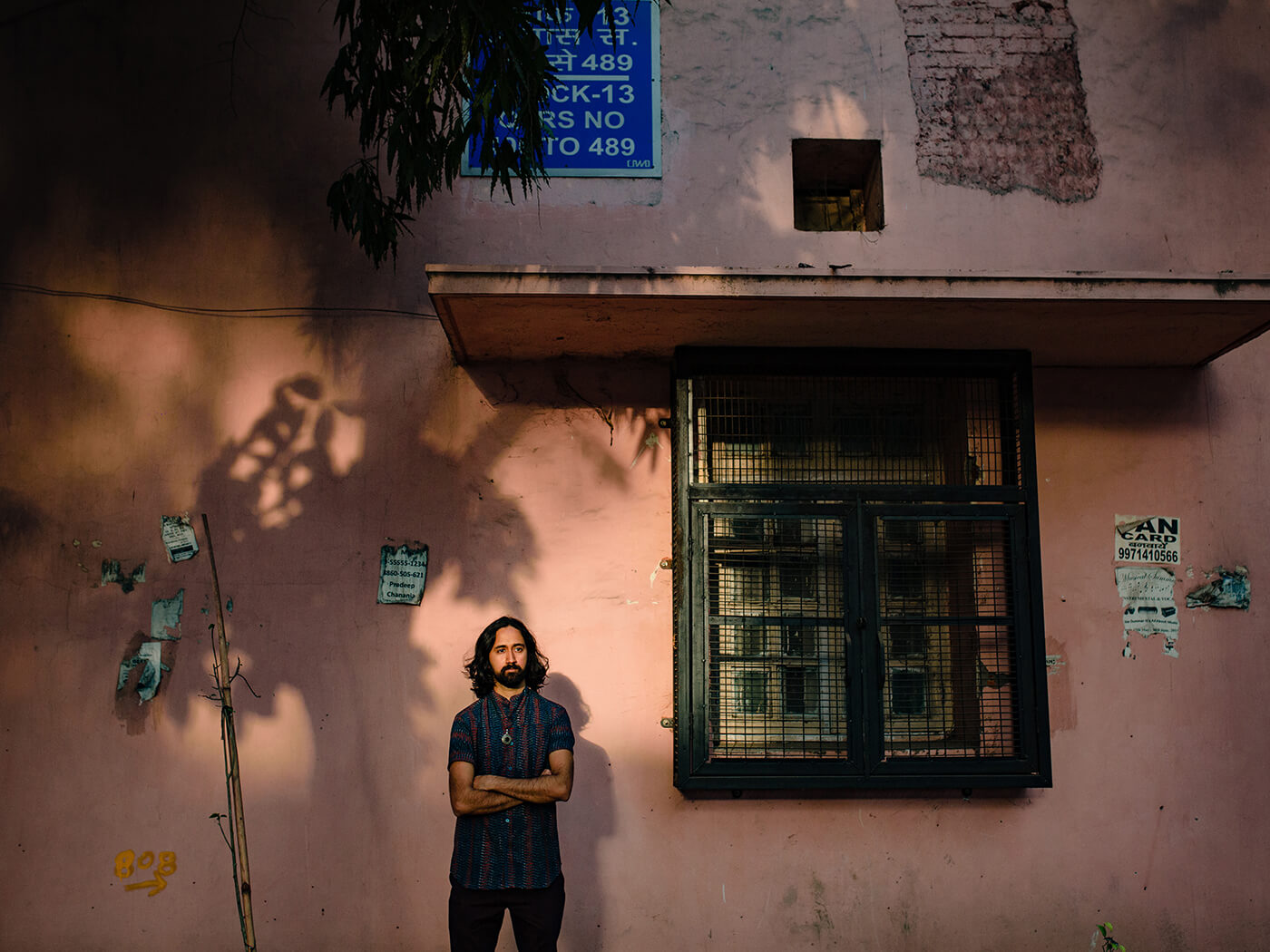
Essential advice
With such a background in innovating his own unique ways of working, it’s perhaps unsurprising that Korwar advocates for experimentation early on in a producer’s musical development.
“The only way for me to do it was to learn by making mistakes and taking chances,” he says. “That’s the way most great producers operate. They just get better at trusting their ears. But being a great producer is also about being a great composer. You need to feel like you’re creatively impacting the sound of anything you’re working on.”
Korwar also feels that learning the studio basics can help emerging producers progress and ensure they’re more confident when making creative decisions.
“The basics are important, and I didn’t learn them until much later,” he says. “But understanding EQs and compressors, it was still massive for me. Arranging comes from confidence too – knowing the shortcuts, how to piece music together, it comes with time and practice and getting used to your equipment.”
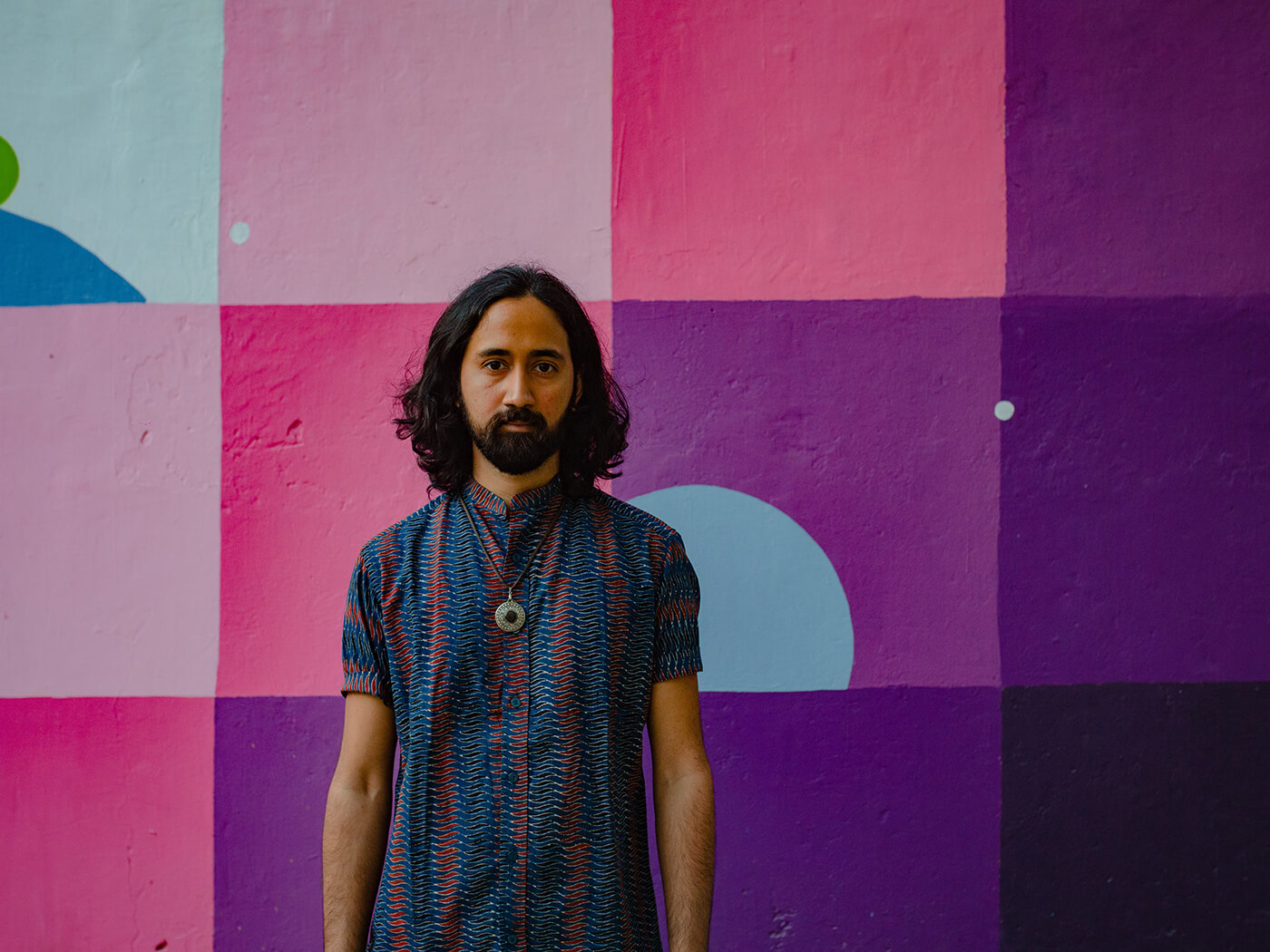
AIM and beyond
While 2020 was an undeniably strange year for us all, Korwar’s was brightened by triumph after winning the AIM Award for Best Independent Album of 2020.
He admits to being surprised to be placed top of a shortlist that featured Nick Cave and Laura Marling.
“It was very strange to win but amazing at the same time,” he says. “Part of the reason we make this music is to be seen anyway, to say, this is us, South Asians and Indians in 2020. To be recognised is one step further in supporting the idea that we deserve to have a seat at the table of independent music.”
Visit sarathykorwar.bandcamp.com for more information.
More Arriving is out now via The Leaf Label.
Sarathy Korwar and Upjar Collective’s improvised live recording, The Dreamer Direct-to-Disc Sessions, is also available.